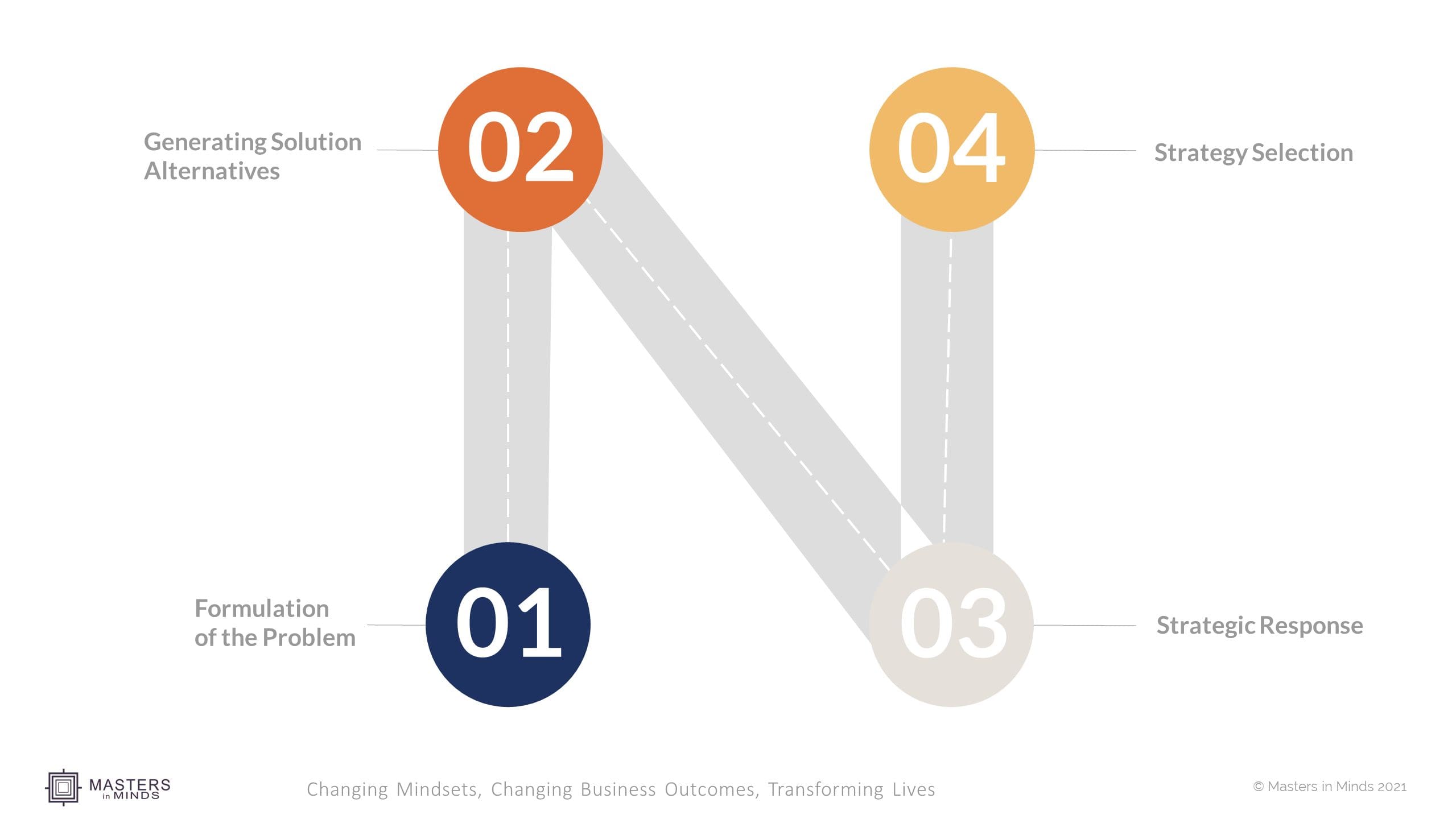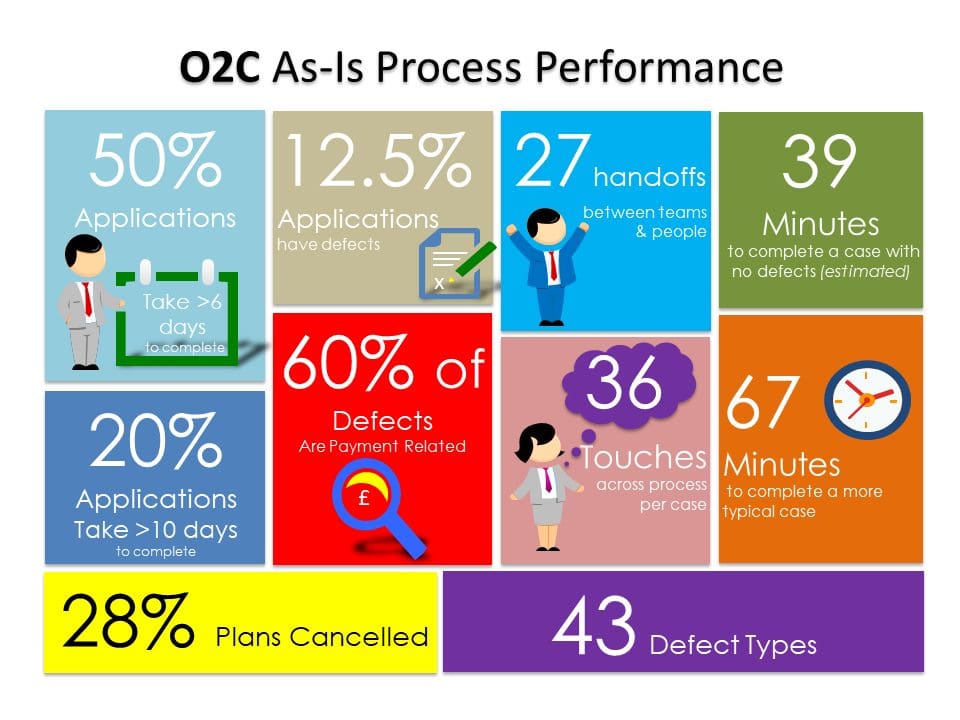Both how organisational culture influences the implementation of strategy and the bidirectional relationship between the two are well documented. However, this submission seeks to shed some light on how the strategy formulation stage is moulded by culture.
There are many different definitions of organisational culture, with Ravasi & Schultz putting forward that it consists of ‘a set of shared mental assumptions that guide interpretation and action in organisations by defining appropriate behaviour for various situations,’ (2006, p.437). Strategy, for the purposes of this submission, has been defined as ‘the match an organisation makes between its internal resources and skills…and the opportunities and risks created by its external environment,’ (Hofer and Schendel, 1978, p.12). This submission will be proposing that whilst the relationship between strategy and culture can be bidirectional, the influence of culture is greater and this influence affects each and every stage of the strategy formulation process.
Firstly, the influence of culture regarding which of the strategic processes an organisation embodies will be examined. Then, a breakdown of each stage of strategy formulation process, alongside practical examples, will reinforce the power of culture. Finally, the influence of societal culture will be briefly evaluated, concluding that while it is influential, it ultimately forms an aspect of organizational culture.
Strategic Processes
There are three broad schools of thought regarding strategic processes: deliberate, emergent, and process. Essentially, organisational culture influences which of these processes an organisation can successfully embody.
Emergent
The emergent perspective views strategy as evolving to adapt to organisations ever-changing circumstances and corporate culture arguably has the greatest impact on this process. The formulation is based upon a series of informal processes/interactions, often emerging from day-to-day routines (Jonson, Scholes, and Whittington, 2010). In this process, strategy is constantly being reconfigured and redefined requiring organisational-wide collaboration (Kruger, Mazza, and Lawrence, 2007) based upon the notion that ‘strategies grow initially like weeds in a garden; they are not cultivated like tomatoes in a hothouse,’ (Mintzberg, 2018). The influence of culture is undeniable as employees are required to, not only adapt to constantly changing strategies, but also proactively seek out new opportunities and strategies. The responsibility of employees is highlighted by Clayton Christensen who stated, ‘what you have to ensure is that all of the employees are looking for new opportunities to grow’ (Stobierski, 2020). Clearly, for strategy to be formulated in this way, an organisation’s culture must align.
By referring to Johnson, Scholes, and Whittington’s (2005) cultural web, certain elements of culture can be selected to demonstrate its impact. The power structure, for example, must allow for all employees to feel comfortable approaching senior management with problems/ideas. Moreover, rigid routines should be avoided, otherwise, the organisation risks acceptance of status-quo rather than seeking new opportunities. However, culture is just one contextual factor as companies also interacts with external environmental stimuli (Parsons, 1961) meaning that industry, for example, could be influencing strategy as well. For example, many large technology companies embody the dynamic capabilities strategy (Helfat, 2013) suggesting that some environments are better suited to certain processes, henceforth influencing strategy. This, however, does not undermine culture’s influence, it merely extends the elements culture must be aligned to for successful strategy formulation to ensue. Clegg et al (2020) supports this stating that emergent strategies rely upon all three elements of culture: artefacts, expressed values, and basic underlying assumptions.
The control (hierarchy) element of Quinn and Rohrbaugh’s (1983) competing values framework illustrates a type of culture that is ill-suited to an emergent process. This culture, often stereotyped as bureaucracy, is unaligned as its key characteristics include stability, control, and standardization meaning it is slow to perceive the need for change. Evidently, organisational culture can prevent companies from employing this strategic process.
Deliberate
Another strategic process is the deliberate one, where strategy is viewed as rational, analytical being created by top management’s conscious decision-making and then cascaded through the organisation (Clegg et al., 2020). This process would be far better suited to the ‘control (hierarchy) culture previously discussed. Effectively, deliberate strategic process has been built on the premise that ‘unless structure follows strategy, inefficiency rules,’ (Chandler, 1962, p.314). However, the applicability of this process has been questioned, with Mintzberg arguing only 10-30% of intended strategy is realised in this way (Grant, 2021). Additionally, due to the inherent nature of the deliberate process, often culture only impacts strategy during the implementation stage, which is out with the realms of this submission. However, the move away from this process towards the emergent has arguably increased the influence of organisational culture during the strategy formulation stage.
Process
Finally, Andrew Pettigrew developed the process strategy which embodies elements of deliberate and emergent. Process views strategy as a way of simplifying a complex world and organizing change to follow the desired direction (Clegg et al., 2020). Central leadership controls strategy, but the content is determined by the wider organisation. The primary influence within this process is the organisation’s learning which should behave as a whole strategically (Senge, 1990) replacing predictability with preparedness. As culture is an important determinant of an organisation’s ability to learn and adapt to new circumstances (Schwartz and Rist, 2017), culture's influence is also apparent in this way of formulating strategy.
Evidently culture influences which of the strategic processes an organisation can embody, especially regarding process and emergent.
Strategy Formulation: Stage by Stage

‘By influencing strategic decision processes, organisational culture also indirectly influences the content of strategy,’ (Shrivastava, 1985, p.106). As strategic decision-making often tackles novel problems requiring thorough environmental analysis and interpretation, it is difficult to base decisions purely on rationality. In smaller organizations especially, strategy can be heavily influenced by the personality, characteristics, subjective attitudes, and motivations of those decision-makers (Wang, Walker and Redmond, 2007). Johnson, Scholes, and Whittington’s (2005) cultural web, among other elements of culture, will be used to illustrate corporate culture’s impact during every stage of strategy formulation. Admittedly, not every organisation consciously follows these four distinct steps, however, each stage will be considered to some extent. By whom and in what way is decided by the previously discussed strategic processes.
-
Formulation of the Problem
Firstly, problem formulation can be affected by stories. During problem identification, managers generally start by informally and indirectly scanning for more information on issues their intuition registers as a problem (Lyles and Mitroff, 1980). Both their intuition and the information they receive are influenced by the culture as often ‘myths provide a convenient and abundant source of information in ill-structured situations’ (Shrivastava, 2007, p.106). The following example contextualises this. A company developed a computerised management information system due to a dominant myth that their computer systems were a panacea for all their problems. This led to the wrongful formulation of the problem and the subsequent preclusion of other solution alternatives (Shrivastava, 2007). Therefore, the preconceptions of those formulating problems, the information they gather through social interactions, and the underlying, unquestioned organisational myths all influence the problem formulation stage, reiterating the influence of culture on strategy.
Additionally, power and organisational structure cement culture's influence further. If employees do not feel comfortable sharing problems they have identified due to the power structure within the organisation, this will limit the formulation stage. Knowledge sharing is an essential attribute within the problem formulation stage and prospers with structures that support ease of information flows. (Syed-Ikhsan and Rowland, 2004). Although one could argue that this is organisational structure influencing strategy, structure is often considered an aspect of culture (Johnson, Scholes, and Whittington’s (2005), henceforth solidifying culture's sway. A practical example that illustrates this is Facit Inc, where the refusal of managers to recognise the potential of electronic calculator technology led the organisation to incur huge losses. This oversight stemmed from an organisational myth regarding the invulnerability of their product. However, this was intensified by their hiring from within the structure which reinforced this myth. Evidently the organisational culture is a dominant influence during the problem-identification stage of strategy formulation.
-
Generating Solution Alternatives
The language systems and metaphors often used by the organisation shape decision alternatives. The commonly utilized business as war metaphor is a good example, as by continually boxing strategy into this metaphor, it guides the creation and selection of strategic alternatives (Boulding, 1976). It is unlikely an employee viewing business as war would ever suggest a non-competitive strategic alternative, however, Alex Smith's ‘you win when you refuse to compete’ is a valid and potentially successful strategic option (Smith, 2019). Moreover, looking at the bigger picture, the organisation should utilise this stage to exploit the available opportunities that will improve the alignment between strategy and culture (Pearce and Robinson, 1991). Regardless of whether it is culture influencing strategy or vice versa, alignment between the two is imperative, as culture can either be the greatest contribution or obstacle to a successful strategy.
-
Strategic Response
Rituals and routines can influence the strategic response as standard operating procedures typically generate automatic responses that promote inflexibility, solidified by years of unquestioning acceptance (Starbuck, 1983). For example, within large multinational banks, it was found that their well-established procedures for strategic development had trapped them in a loop of formulating and circulating strategy, which, then became obsolete prior to implementation (Bresser and Bishop, 1983). Routines help to cement the mindset ‘we’ve always done it this way’ (Thomas, 2017) which has been described as the most damaging phrase in business. This underpins a form of harmful corporate culture, which is intensified by routines, as static companies rarely sustain success (Zimmerman, 2019). Undoubtedly, this type of culture is going to adversely affect the organisation’s strategy, regardless of how genius the strategy is.
Additionally, the basic underlying assumptions held by an organisation can also influence its strategic response. The News of the World, for example, held the belief that journalism was about generating scoops on sensationalised news. This belief was so deeply entrenched that to achieve this many journalists partook in illegal activities, although within the organisation they were widely accepted as normal (Waterson, 2021). To solidify the fact this was culture influencing them rather than an external force, The Times, another newspaper, owned by the same parent company, operating in the same industry and country, did not partake in such crimes (Clegg et al., 2020). This example perfectly demonstrates how differences in organisational culture alone, can sway which strategic options are considered available by an organisation.
-
Strategy Selection
Finally, the strategic selection stage is influenced by the organisation’s value systems, among other elements of culture. It is generally believed that the adoption of a firm’s strategy is highly dependent upon which type of culture it has (Wong et al., 2013). Whether the ultimate decision is being made by a single top manager, a strategic team, or more broadly within the organisation, strategy is inherently subjective meaning people rely upon their judgment, intuition, and experience to varying extents. Despite a vast range of tools to aid managers' decision-making existing, ‘it is far too easy to fall prey to our biases and focus on a limited set of self-serving analogies that support our preconceived notions,’ (Courtney, Lovallo and Clarke, 2013). Clearly, when adopting strategy there is an underlying rationale that different firms interpret pressures based on their unique set of organisational characteristics (Deshpande, Farley & Webster, 1993).
Ultimately, organisational culture influences the problems the strategy is aiming to solve, the solutions generated, the strategic response, and the strategy selection. This, among other reasons, is why it is commonly believed that organisational culture positively links to both performance and competitive advantage (Klimas, 2016).
Strategic Options Available
Generally, which strategic options are unsuitable due to the organisation’s culture is something that should be considered in the formulation process. However, due to oversights, sometimes misaligned cultures and strategies are only noticed during implementation. This does not, however, change the fact that cultural alignment is a crucial consideration within strategy formulation. Where these two parallels are mismatched, alignment can result from changes to strategy or culture (Montanari, Morgan & Bracker, 1990). The adverse effect of misalignment is demonstrated by Texas Instruments where their ‘culture was not sufficiently Tough Guy/Macho. Indeed, with a history of obtaining the lion’s share of its business from relatively safe-bet defense contracts, TI’s culture had evolved into basically the Process type’ (Deshpande and Parasuraman, 1986, p34). Clearly even a successful organisation opting for a strategy without first assessing the compatibility of its culture can lead to failure.
Whilst organisations do have the option to change the culture to suit strategy, culture ‘is hard, if not impossible, to engineer,’ (Clegg et al., 2020). Having said this, this example illustrates a success story (Chatterjee, 2016): Johnston & Johnston adopted a diversification strategy moving from basic consumer products into high-tech products. A quote from their Chairman, James E Burke, shows him reshaping their organisational culture stating ‘one of the things we insist on here is that everybody understands part of their job is to fail. You don’t move forward unless you make mistakes,’ (Deshpande and Parasuraman, 1986, p34). Clearly the relationship between culture and strategy is bidirectional with strategy also having the power to influence culture. Overall though, the fact culture required adaption for the strategy to be successful illustrates the power of culture's influence.
Organisational Culture or Societal Culture?
However, it is important to remember that organisational culture is not the only influential force impacting strategy formulation. Societal culture also has a great impact, with Jaeger and Balgia (1985) increasing the awareness surrounding societal culture's relationship with strategic planning and decisions. More specifically, Faucheux (1977) gives an example arguing that the development of companies within the Latin culture is based upon metaphors from the Catholic church and hence a very centralised, top-down policy-making structure. Whereas Anglo-Saxon organisations follow a more operational approach based on the existence of consensus and decentralised responsibility. Effectively, this is demonstrating how societal culture can impact the processes and structures within organisations, which subsequently influence strategy. Having said this, corporate culture tends to incorporate the societal culture of the continent/country or cities the company is based within naturally. Henceforth this may not be a reason organisational culture is less influential, but merely explains where elements of the corporate culture stem from.
Conclusion
Overall, the influence culture has on strategy formulation is undeniable. An organisation’s culture influences which of the strategic processes can be adopted, each and every stage of strategic formulation process, and even which strategic alternatives are feasible for an organisation. Admittedly, the relationship is bidirectional, and on occasion, culture requires adaptation to suit strategy, however, this submission argues that this only reinforces organisational culture’s power.
For these reasons, this submission adopts the view of Peter Drucker, that even during the strategy formulation stage: ‘culture eats strategy for breakfast,’ (Guley and Reznik, 2019).
Follow us on LinkedIn for more content.








